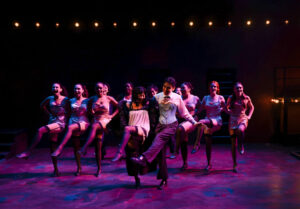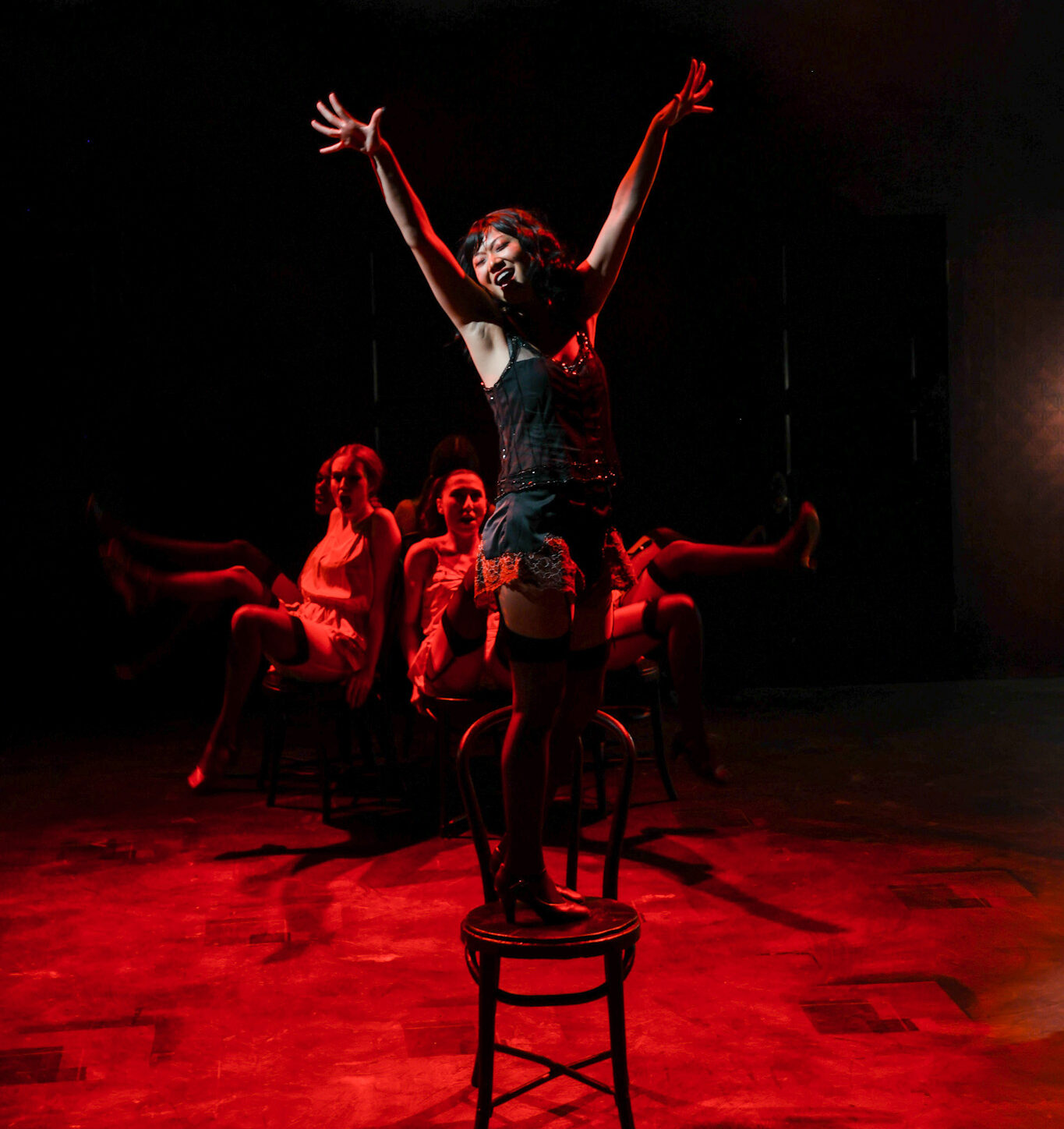Through their comedic and sensual musical numbers, the cast managed to transport the crowd to the Berlin Kit Kat Klub.

The UCR theater, film and digital production department selected the sensual, yet politically charged production of the musical “Cabaret” to be a part of their fall season, thrilling the audience by giving the production its own twist. “Cabaret” depicts a story of love and hardship from 1929 to 1930 in Berlin, Germany during the rise of the Nazi party. With raunchy dance and musical numbers setting the scenes and breaking up the heavier undertones of the show, the cast perfected the tone of the infamous Berlin Kit Kat Klub.
The standout performer of the night was the Emcee played by Ryan Ong. Ong’s energy and take on the character were exhilarating, causing me and the audience to question every move they might make. From the Emcee’s fun costumes to their eclectic faces and dance moves, the first act of “Cabaret” was fun and full of debauchery. The Kit Kat Klub dances also delighted the audience with their silly and sexual moves ensuring that those watching would “leave their troubles at the door.” The remarks and faces they made toward the audience allowed everyone to feel a part of the show.
The second act, however, took a darker turn as main characters Clifford Bradshaw, played by Josiah Alpher, and Sally Bowles, played by Jade Duong, realize that their relationship would not survive Sally’s desire for fame and the rise of Nazism. During the second act, Ong’s performance felt like the Emcee was stung-out and on their last limb. Their dance moves became more cynical and their makeup appeared smeared and messy.
Other notable performers who stole the hearts of the audience were Fraulein Schneider, played by Jayla Jacob, and Herr Schultz, played by Aaron Martinez-Duenas. The elderly couple’s complicated love story follows Schneider, the owner of the inn, and Schultz, one of her occupants, as they slowly fall in love. Their slow progression from a business relationship to fiances was cute and swayed the emotions of the crowd. Unfortunately, their story is short-lived with Fraulein deciding to end the wedding upon realizing the consequences that will come with marrying a Jewish man as the Nazi party gains popularity.
The play ends with the Emcee and the Kit Kat Klub dancers begrudgingly dragging themselves onto the stage only to fall down amidst a backdrop of barbed wire and smoke. Seen standing inside the three doors of the backdrop are Sally, Fraulein and Herr. The audience is led to believe that they have faced the unfortunate fate of the Nazi internment and concentration camps. While the majority of the cast did not fear the Nazis and were confident that Germany would prevail, Clifford was the only one who escaped knowing what was in store for the country.
Although “Cabaret” was originally written in 1966, the social and political tones of the performance still hold true today. There has been a recent rise in nationalism and fascism, and stories like this should be taken as a warning of the dangers that come with these strict political ideologies. It was also refreshing to see a diverse cast reviving the sensational play. Overall, UCR put on a great performance that managed to sell out most nights, distinguishing themselves with their first show of the school year.
More information on the play, as well as a full list of the cast, crew and staff, can be found on the UCR TFDP website.








